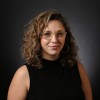Retiring Las Vegas Valley doctor will miss patients, not paperwork
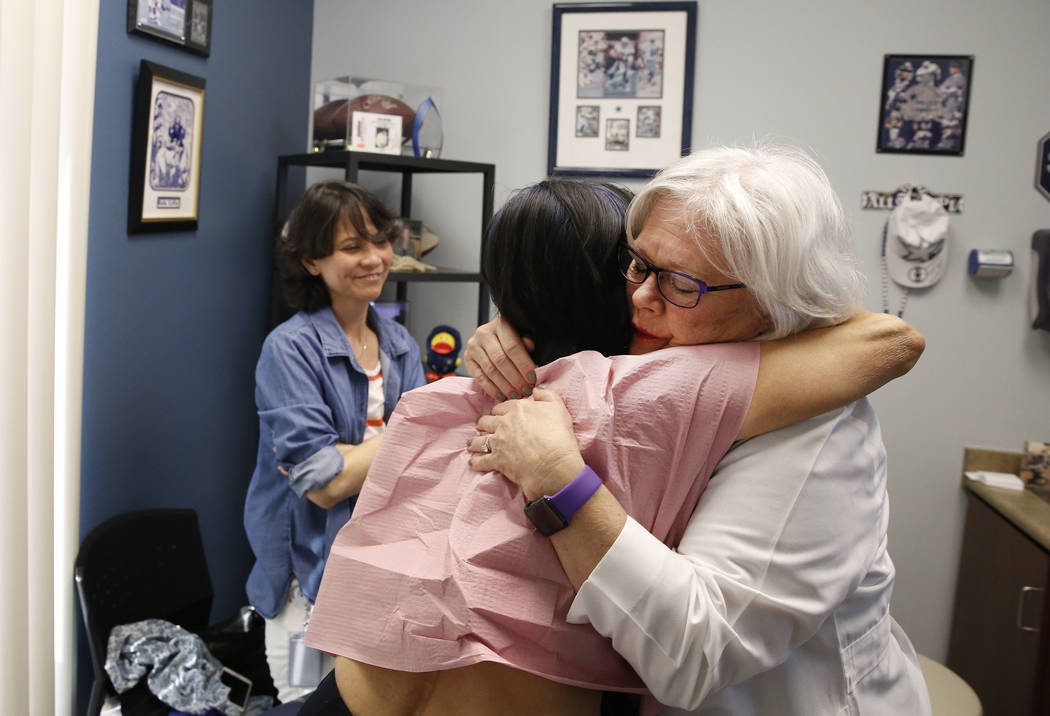

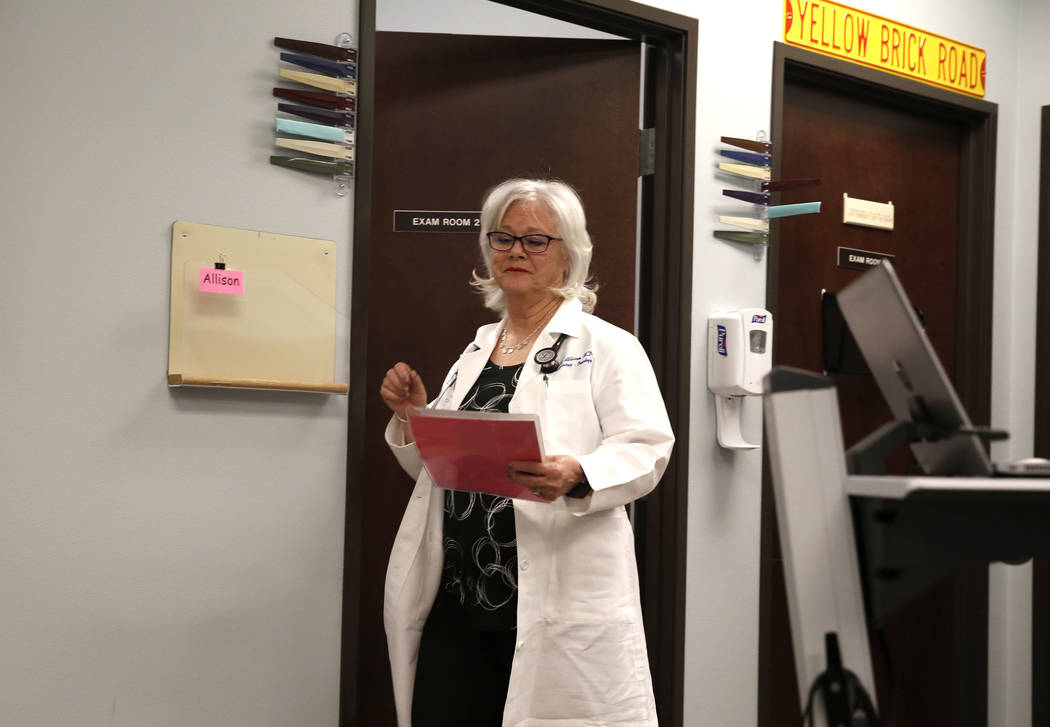
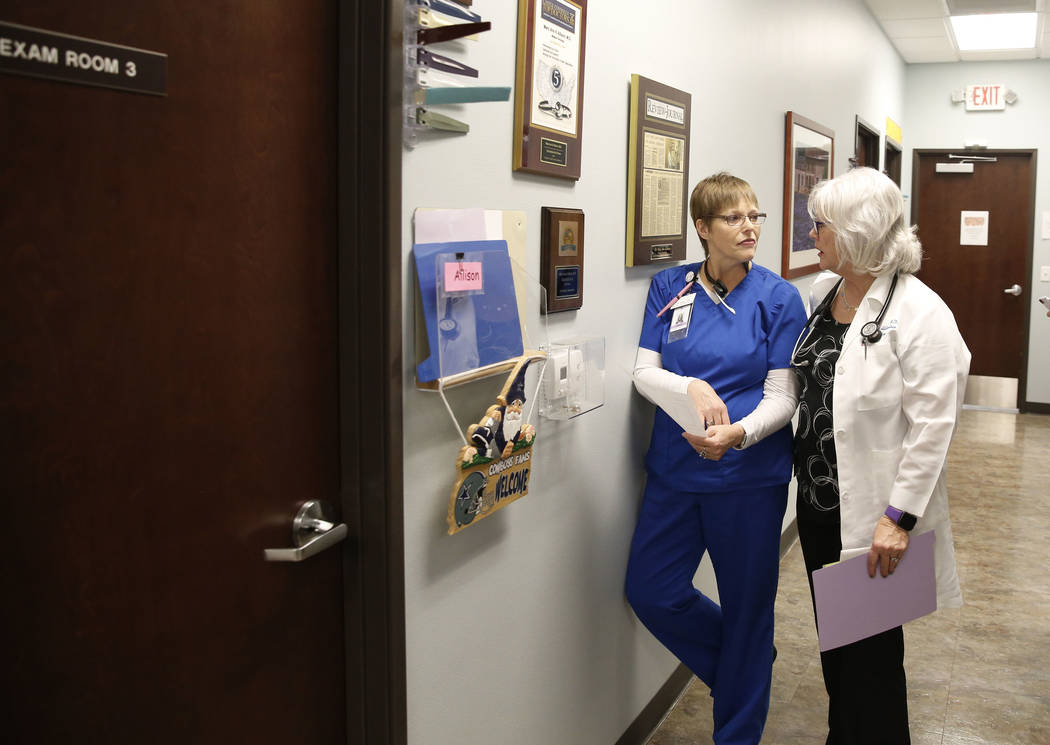


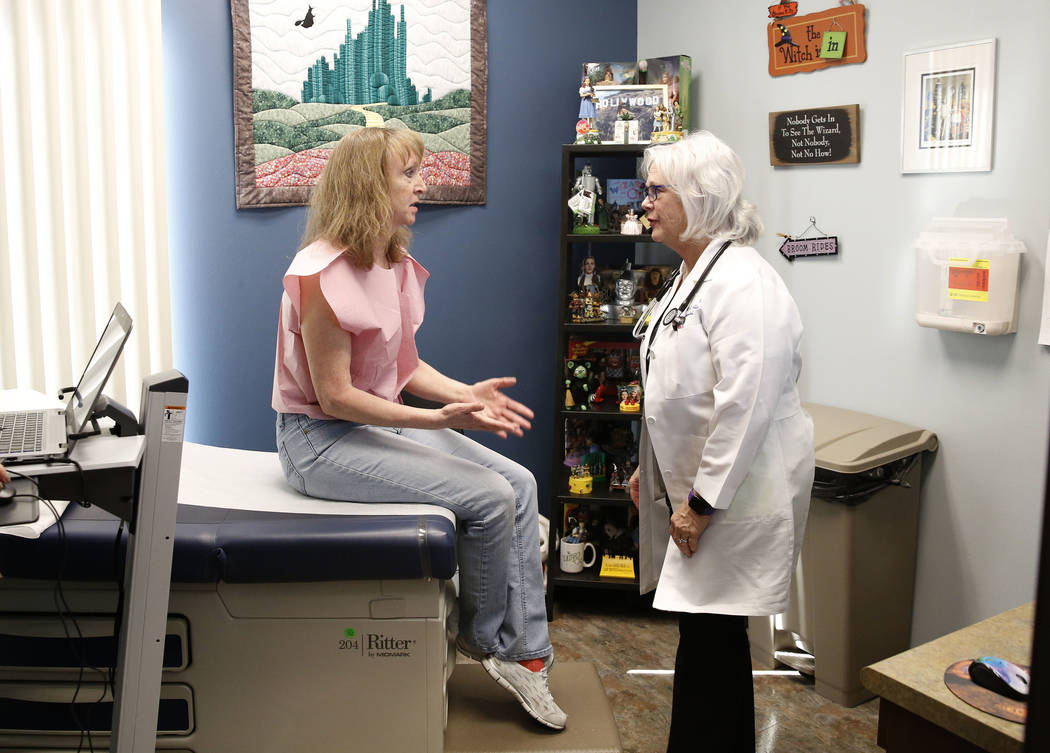


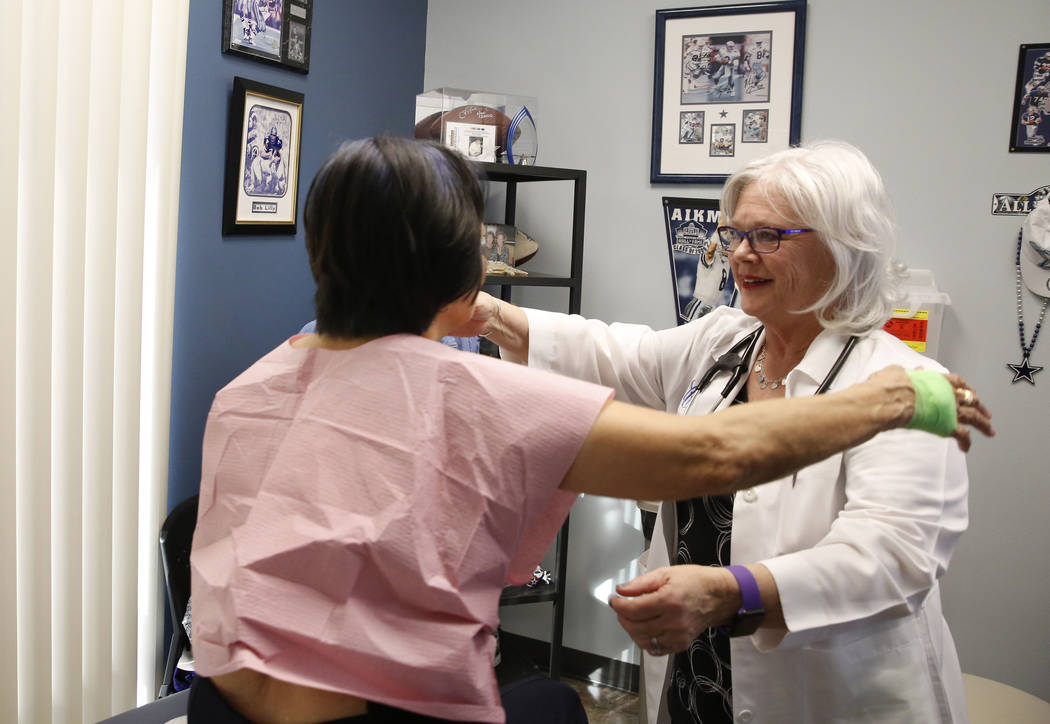
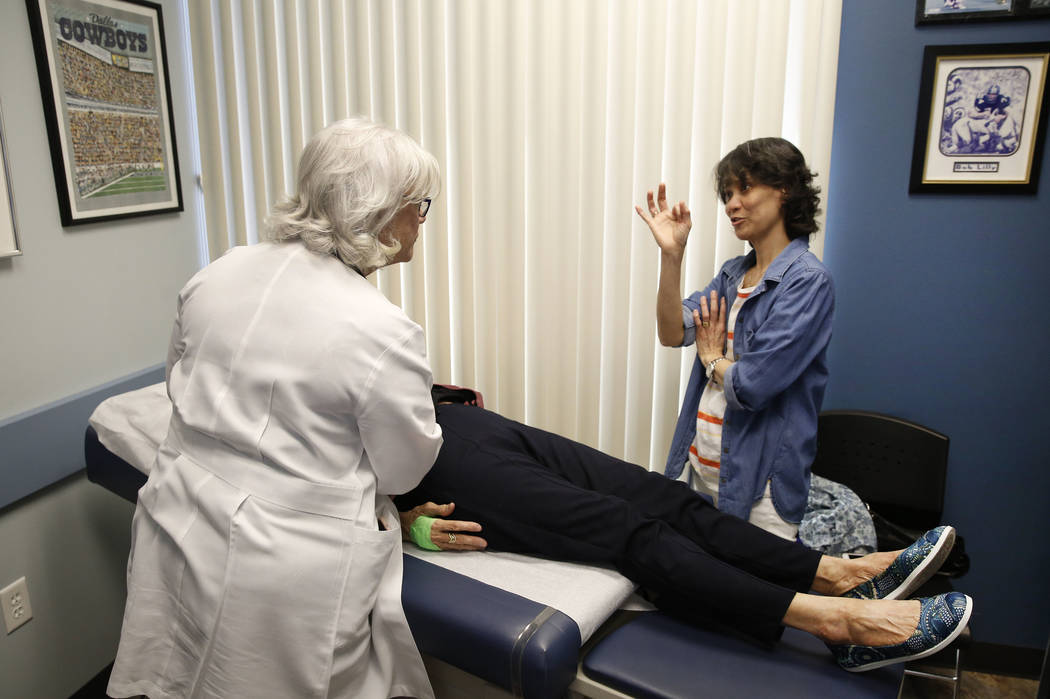
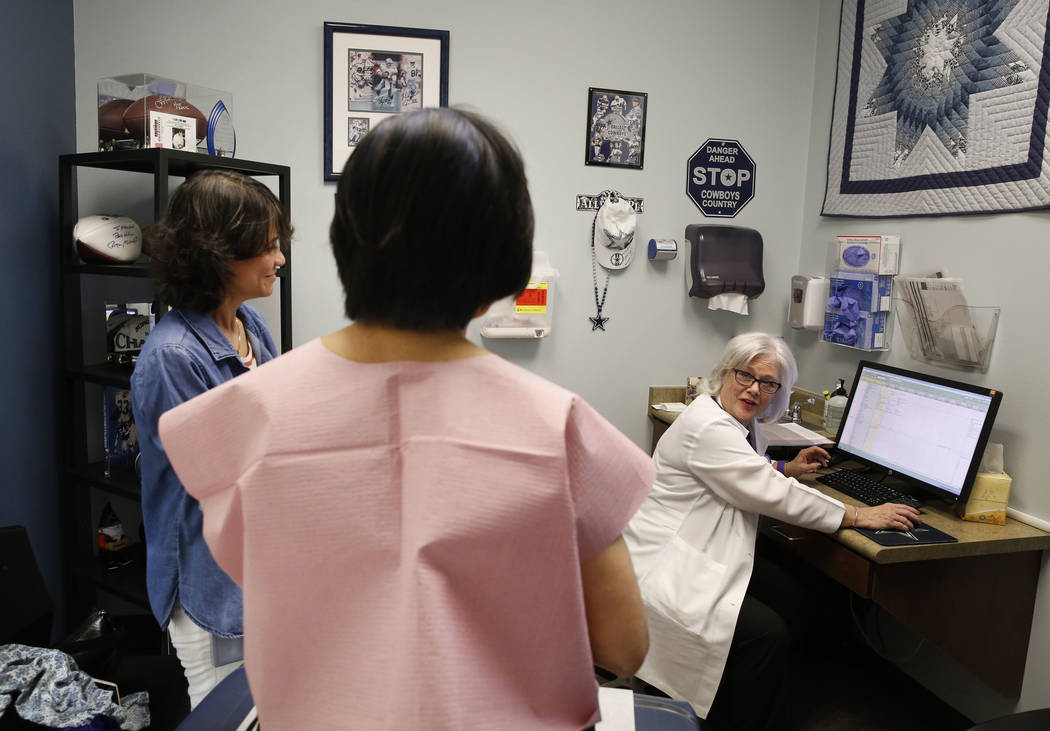
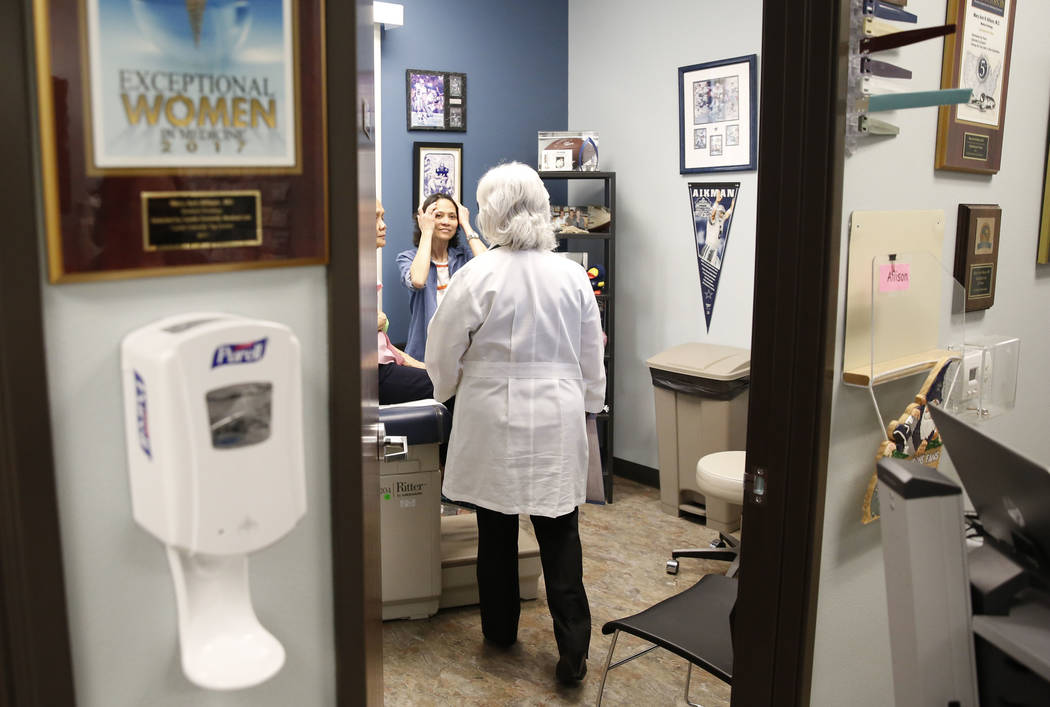

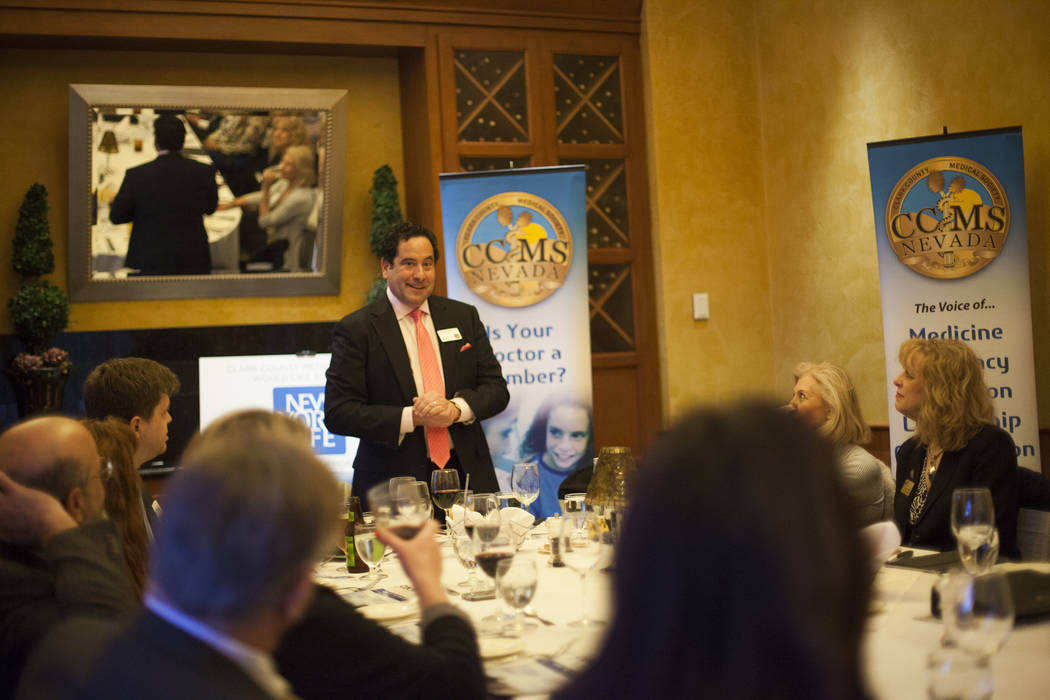
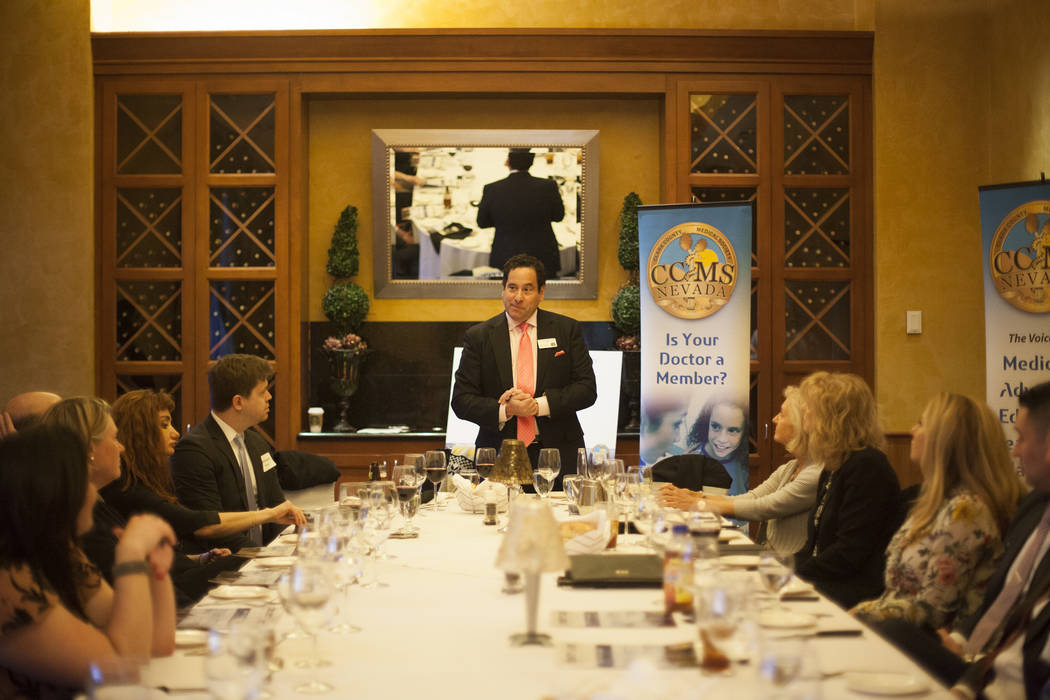
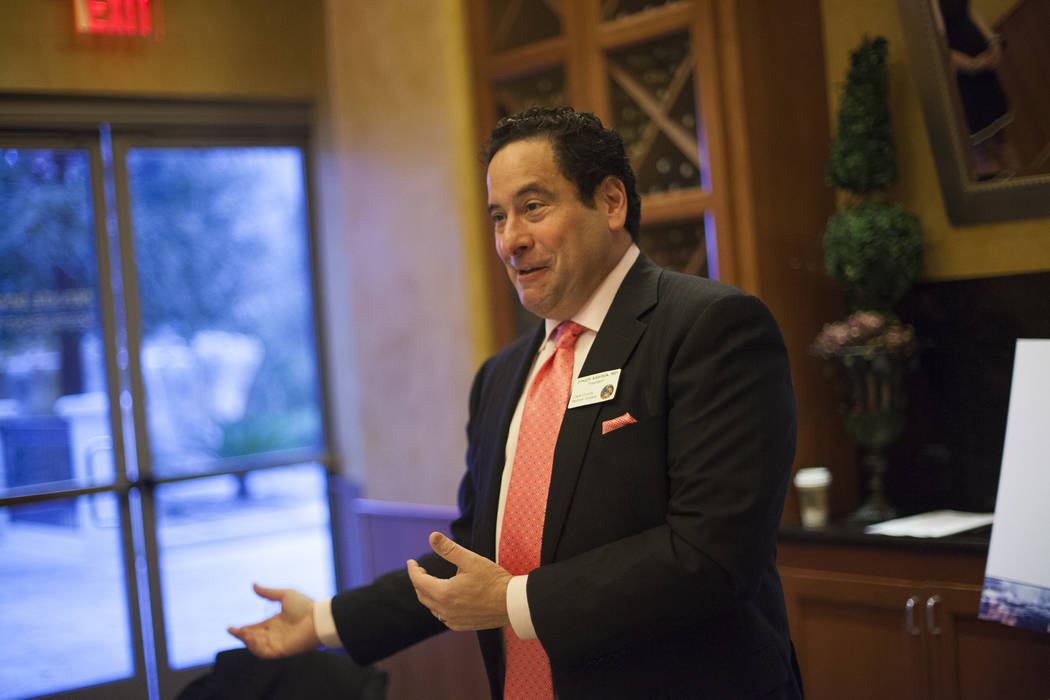
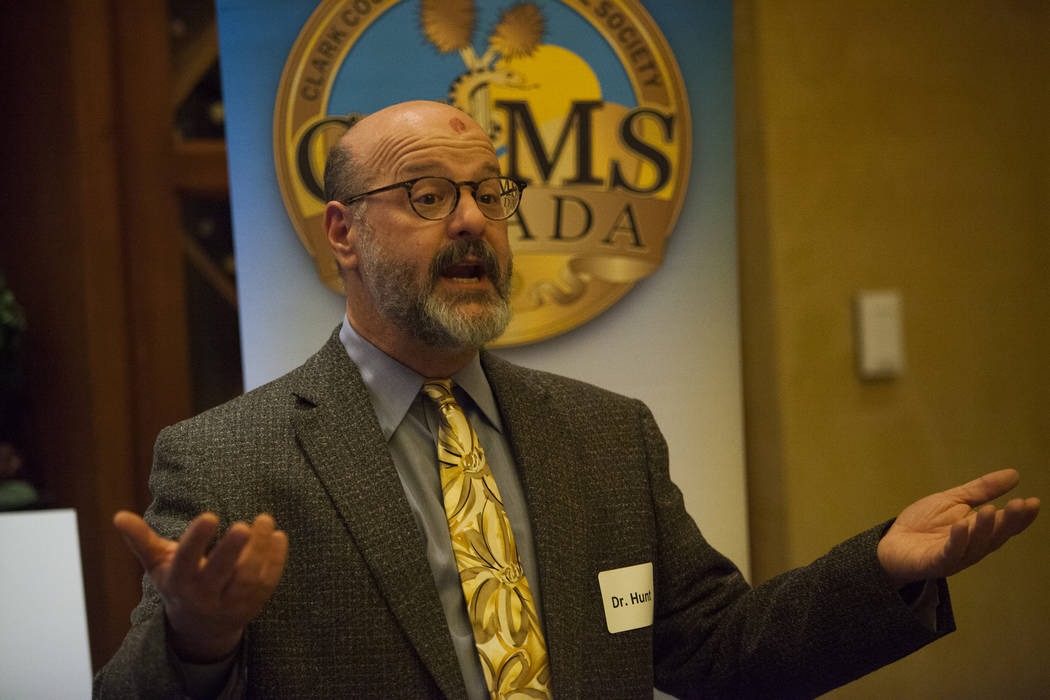

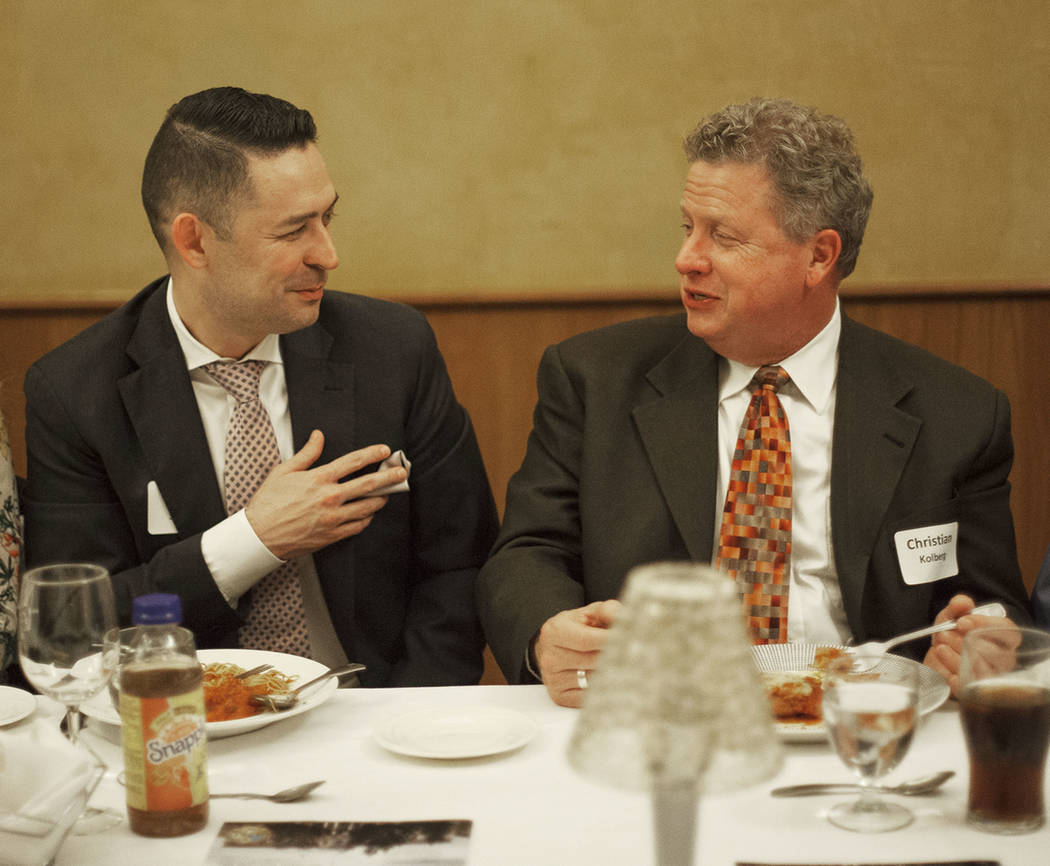
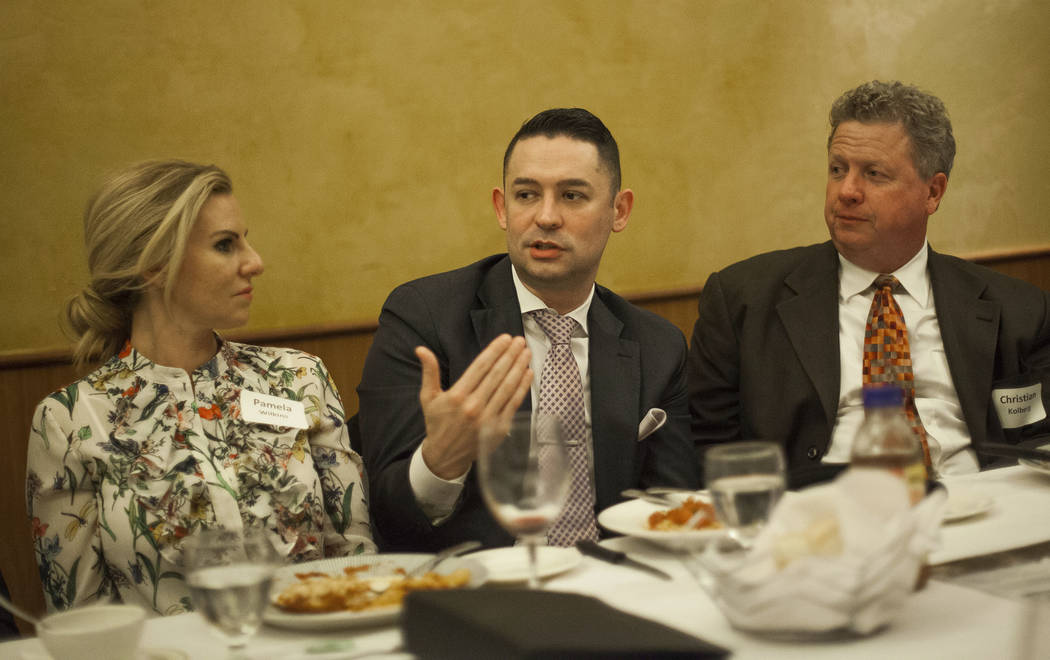
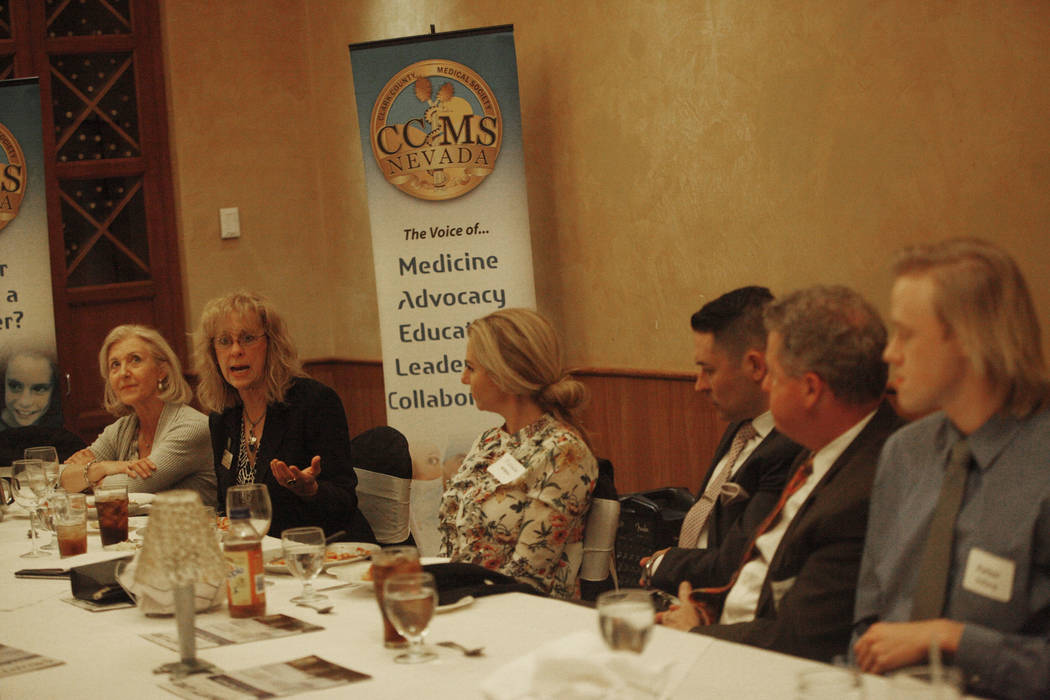
By 10:58 a.m., Dr. Mary Ann Allison already has been working for more than four hours.
The prominent local oncologist is tired after seeing nine patients, and in the two- to three-minute window before her next appointment she rests on a short white stool and sips from a glass of water as a nurse briefs her on lab results and missed calls. Then she’s back on her feet and hurrying down the hall for the next installment of what promises to be another 12-hour day.
A Review-Journal reporter trailed the 66-year-old Allison, co-founder and practice president of the Comprehensive Cancer Centers of Southern Nevada, on a recent Thursday as she made her rounds, an opportunity afforded by a job-shadowing program offered through the Clark County Medical Society.
It was a good time to catch Allison, as she plans to retire on April 9 after more than 35 years as a doctor, leaving behind a slew of patients grateful for her care during difficult times in their lives.
She says she’ll miss her patients, but not the ever-growing pile of paperwork that confronts her each day.
“You get to the point where you really kind of want to back off for a bit,” Allison said, sitting in her Henderson office alongside a filing cabinet sprinkled with photos of her family, including two sons and a “grandbaby.” “And things continue to get more complicated, just all this paperwork.”
From Texas to Las Vegas
Allison received her medical degree at the University of Texas Medical Branch in Galveston in 1978, then completed her internship, residency and fellowship at Baylor University Medical Center in Dallas, during which time she married and had two sons — her proudest accomplishments, she says.
She recalls that when she first entered the field, the paperwork was negligible compared with today. Technological changes, including electronic medical records and insurance authorizations, and laws like the new Nevada Controlled Substance Abuse Prevention Act, which took effect Jan. 1., have made meticulous documentation an everyday part of the job.
“The amount of charting that you have to do now that’s mandated is much more significant than it ever was,” Allison said, adding that while she appreciates the extra safety net, the paperwork can add up to two hours to an already long day.
In her case, that day typically begins between 6:30 a.m. and 7 a.m., though she often begins with calls to colleagues on the drive to the office. Before her first appointment at 8:15 a.m., she reviews lab results for patients she’ll see that day.
“People have no clue what we do,” Allison said. “You know the perception is that we work 8 to 5, I think.”
After spending six years working in the small city of San Angelo, Texas, Allison decided to try working in a faster-paced group practice, so her family of four picked up and moved to Las Vegas in 1993.
Saying goodbye
Though she’s only allotted 15 minutes a patient in order to fit 25 appointments into the day, Allison makes a point of getting to know each one.
There are rundowns of prescription medications, odd symptoms and preventive screenings, but also conversations about one woman’s grandchildren, a man’s home renovation and another woman’s changed life as a recent widow.
“That’s what they need,” Allison said. “If all I do is the breast exam and look at their labs, then I don’t know who they are.”
As she jumped from appointment to appointment, Allison was met with shaky voices and sentiments of “I’ll miss you.” Some patients have relied on her as their oncologist for decades.
“I can’t believe it,” 70-year-old Barbara Gibney said as Allison took a seat at her computer, referring to the doctor’s impending retirement.
“We’ve been through a lot,” Allison said.
The fond farewells continued through the morning, with Allison hugging each patient before squirting a glob of hand sanitizer into her palms and rushing off to the next.
Gardening and Pilates
While she’s watched treatments advance since she began in the field, including the introduction of nausea medication and growth factors to maintain blood counts, Allison said she’s worried about how the rising cost of drugs will affect cancer patients.
“My people have pills now that if they were pay for them out of pocket, it’d be $10,000 a month,” Allison said.
She admits she’ll miss the patients and her staff. Before she leaves, she’ll have to figure out what to do with the posters, books and trinkets that decorate her three patient rooms themed to represent the Wizard of Oz, the Dallas Cowboys and her family.
In retirement, Allison plans to garden more often and continue taking Pilates. She’s also looking forward to spending more time with her husband and visiting family in Texas.
“I just need to recharge my battery,” Allison said. “That’s all.”
Contact Jessie Bekker at jbekker@reviewjournal.com or 702-380-4563. Follow @jessiebekks on Twitter.
Accompanying a doc
Offered through the Clark County Medical Society, the annual job-shadowing program pairs up Southern Nevada business and political leaders with doctors for a day in an effort to help foster respect for medical practitioners and start conversations on improving patient care, says the society’s executive director, Alex Silver.
“In the current state of the way legislation has impacted medicine, it also has impacted patient care. It’s affecting patient access. And sometimes, it’s affecting the quality of care that they’re getting, or at least the perception,” Silver said. “It’s our hope that when folks get to see behind the shadows, they see there’s still work going on behind the scenes.”
At a dinner Wednesday attended by about 20 participants in this year’s program, conversations about areas that could use improvement were already brewing.
“Is there some way we could have a conversation in the community about the practice of the business side of medicine … and distinguishing patient care and customer service and how they go together?” former Republican Assemblywoman Valerie Weber, who is running for state Senate in District 8, asked the group of doctors and business leaders. “To me, I think those conversations need to be ongoing.”



